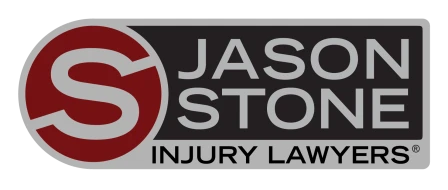Are workers’ compensation settlements taxable in Massachusetts? In most cases, funds paid through workers’ comp do not count towards your gross income and, therefore, aren’t taxable. However, exceptions can allow the government to tax these funds.
A Boston workers’ compensation lawyer from our team at Jason Stone Injury Lawyers can review your situation after an on-the-job accident. We’ll answer questions about your potential compensation so you can feel more confident about your claim.
Learn more today by calling or completing our online contact form.
Does the IRS Tax Workers’ Compensation Settlements?
The IRS (Internal Revenue Service) generally treats workers’ comp payments as non-taxable. The agency treats these payments as tax-exempt as long as you receive them according to relevant statutes in Massachusetts.
Therefore, your workers’ comp payments must adhere to all regulations in the Workers’ Compensation Act (WCA) in Massachusetts. Your personal injury lawyer in Boston can go over these regulations for you, helping you avoid a high tax bill.
We can review the settlement structure proposed for your workers’ comp payment to ensure they follow all state laws.
Are There Times the IRS Taxes Workers’ Compensation Payments?
The IRS may tax a workers’ comp settlement that doesn’t follow the laws in Massachusetts, so it’s essential to have a lawyer look over all paperwork regarding your compensation. Our team has decades of experience and can assess the fine details on your behalf.
Additionally, Massachusetts provides several instances that could result in taxation around workers’ comp payments. These situations may arise if:
You Work on “Light Duty” While Getting Workers’ Compensation
Sometimes, employees return to work after an accident and handle “light duties” during recovery. In this situation, the government could tax the funds you receive. Speak with your lawyer before returning to work so you understand all possible outcomes.
You Get Workers’ Compensation and Your Regular Salary
Sometimes, employers continue to pay salary to an employee who is off with an injury. If you also receive workers’ comp, you must turn the payment over to your employer in this situation.
The IRS will tax funds that you received as your regular salary – minus the workers’ comp payments you turned over. You can learn more about these situations by contacting our legal team for help.
When Will You Get Workers’ Compensation Payments?
You may receive workers’ compensation benefits after an on-the-job accident. Generally, you have to show that your accident occurred while working in order to receive these funds, which can cover:
- A percentage of your lost wages
- Your emergency medical care
- The costs of medical tests and procedures
- Medications
- Travel to healthcare appointments
You may also receive additional funds if your accident left you with permanent disfigurement or scars. Your lawyer will review your specific situation and determine if you qualify to file a workers’ comp claim.
Sometimes, employees take a lump sum workers’ comp settlement. The IRS should not tax this amount as long as the payout follows all regulations in Massachusetts. You can discuss this option with our team today.
How Much Compensation do You Get Through Workers’ Compensation?
The funds available after an accidental injury can vary based on the extent of your injuries and the time you need off work to recover.
We’ll track all of your losses on your behalf, backing up your claim with medical records that show your diagnosis and required treatment and information from your employer about your time off.
Handling your claim with help from a lawyer can help you avoid paying taxes on a workers’ comp settlement.
Can You Sue Your Employer Instead of Taking a Workers’ Comp Settlement?
Some employees consider filing a lawsuit after an on-the-job accident to secure damages. However, Massachusetts usually prevents you from directly suing your employer for compensation.
You may file a third-party lawsuit if someone else caused your accident. For example, your lawyer may recommend a lawsuit if a faulty piece of equipment caused your injuries. In this case, you might sue the equipment manufacturer.
We’ll discuss all your options as part of our Stone Cold Guarantee. You can contact us today for a free consultation. Remember, there’s no obligation, just information ®.
Why Hire Us to Help with a Workers’ Compensation Settlement?
Our team has two decades of experience helping clients with complex legal cases in Massachusetts. As a local law firm, we provide compassionate care. We take the time to answer your questions and help with all the legal hurdles you face.
We understand all state laws that can impact your case, allowing you to feel confident. You can focus on your recovery as we build your claim.
Speak to Us About a Massachusetts Workers’ Compensation Settlement
Are workers’ compensation settlements taxable in Massachusetts? The IRS should not tax your workers’ comp benefits as long as your claim adheres to all state laws. Our team at Jason Stone Injury Lawyers can provide more information about this situation.
Call or fill out our online contact form to learn more.
Not Trusting What You’re Being Told?
Better Phone Stone
800-577-5188
 START MY NO OBLIGATION CONSULTATION
START MY NO OBLIGATION CONSULTATION











